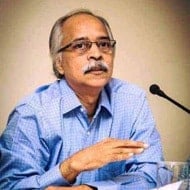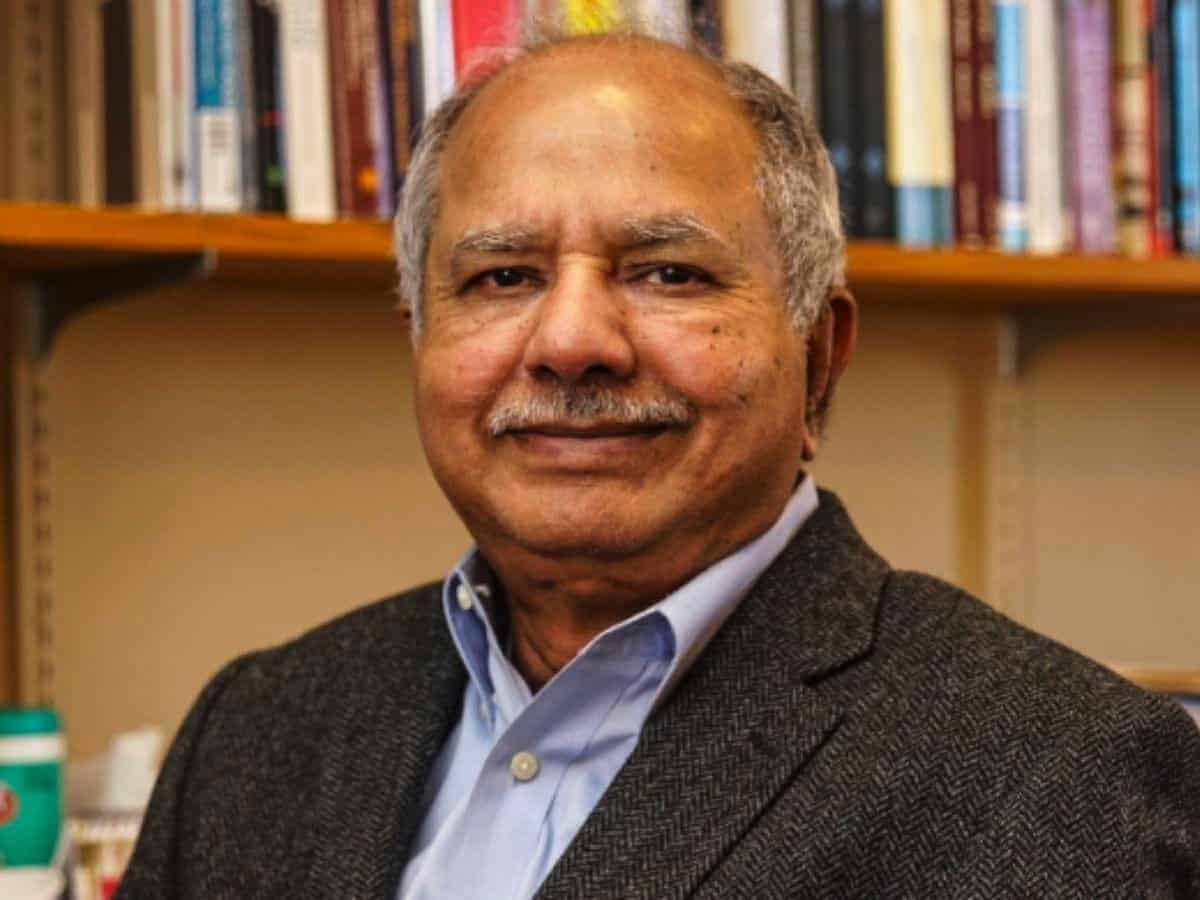
In a rare honour, Prof D Raj Reddy, a pioneer in robotics, artificial intelligence (AI) and speech recognition has been inducted into The Computer History Museum (CHM), Silicon Valley, California.
The 84 year old, Indian origin American, Prof Raj Reddy is presently a Fellow, Moza Bint Nasser University Professor of Computer Science and Robotics, Carnegie Mellon University (CMU), Pittsburg, US. The honour recognises extraordinary individuals for a lifetime of achievement in computing and technology.
“Being selected to be a fellow of the Computer History Museum seems like you have become an antique,” Reddy said after the museum announced the honour. “I guess when you have been working with computers for over six decades you do become ancient!,” he has been quoted.
Prof Reddy was the founding director of the Robotics Institute and Dean of the School of Computer Science at the CMU, with which he continues to be actively associated since 1969. His achievements include developing the first system capable of recognising continuous speech, called Hearsay-1; starting CMU’s autonomous vehicle programme and help in creating The Universal Digital Library- a free, online resource with more than 1.5 million volumes and book digitisation centres in the US, India, China and Egypt.
The Computer History Museum (CHM) is a leading museum and non-profit organization based in Mountain View. It presents stories and artefacts of the Information and Computer Age.
Prof Raj Reddy and Hyderabad
During the past half a century, Dabbala Rajagopal Reddy, popular as Prof Raj Reddy has had many connections, contributions and associations with Hyderabad and combined Andhra Pradesh. At present, he holds the position of Chairman of the International Institute of Information Technology (IIIT), Hyderabad, which also houses the T-Hub. In fact, in September 2020, he delivered a distinguished lecture, virtually for the IIITH.
I recall, Prof Reddy helping establish one of the first Computer technology companies in Hyderabad in the early 1980s called OMC Computers Ltd. It was jointly established by Raj Reddy & the Tata Group Company, Voltas. Incidentally, BVR Mohan Reddy, Chairman of Cyient Technologies, was the President and Managing Director. One of the products that I remember the company brought out was a ‘computer simulated training programme for vehicle drivers’.
During the Chief Ministership of Dr Y S Rajasekhar Reddy of AP in 2008, Prof Raj Reddy and Prof K C Reddy, then Chairman of the AP State Council of Higher Education created the unique Rajiv Gandhi University of Knowledge Technologies (RGUKT). The objective was to ensure talented, rural youth get access to high quality, technical education. The understanding was that the existing all India entrance exams were not providing level playing field for youth from rural backgrounds.
At present there are at least six of them in Hyderabad and Basra in Telangana State and Nuzvid, Ongole, RK Valley and Srikakulam in AP. Prof Raj Reddy was the Chancellor till 2018. He has been succeeded by the Vice Chancellor, Prof K C Reddy. It has a high powered advisory committee including Sudha Murthy.
Controversial, High Bandwidth Project
All engagements with India and AP were not smooth for Prof Raj Reddy. The ambitious ‘Sankhya Vahini’, a high bandwidth project for educational purposes proposed in 1994 ended in a fiasco. Prof Reddy and another well known defence scientist & former Chief of the Defence Research and Development Organisation (DRDO), Dr V S Arunachalam from CMU, first made a presentation to the Prime Minister, P V Narasimha Rao.
After a lull, the project gathered momentum around 1998, with Andhra Pradesh Chief Minister, N Chandrababu Naidu, who was heading an IT Task Force lending support. His Telugu Desam Party was the key ally of the NDA government led by A B Vajpayee, the Prime Minister.
The proposal was to form a joint venture between the Government and IUNet, a subsidiary of the CMU, with Government holding a majority 51 percent stake. The entire project ran into opposition within some sections of the NDA and Union Telecom and IT Ministries. Despite the best efforts of Naidu, the project was shelved in 2001.
Incidentally, Prof Reddy served as a member of the governing councils of the EMRI and HMRI which used technology-enabled solutions to provide cost-effective emergency services and health care coverage to urban and rural areas. He resigned from the boards in early 2009 along with several others like A P J Abdul Kalam after the ‘Satyam Scam’ broke out.
Extraordinary gesture by France
The mention of Prof Raj Reddy takes me back to the mid 1980s, when the Time Magazine featured him as the centre-spread with his large picture and the pointers to his contributions to AI, Robotics and Computers and future of these areas.
In 1984, the French President, Francois Mitterrand, did a great gesture by bestowing Prof Raj Reddy, with the ‘Legion of Honour’, France’s highest civilian award, at an event in the Carnegie Mellon University (CMU), US, which he also addressed.
According to a report in the Pittsburg Post Gazette, dated March 29, 1984, the most heartwarming moments of the ceremony came when Prof Reddy started moving forward, President Mitterrand motioned him back. Then, the President walked towards Dr Reddy and pinned the medal on him, signifying that for that moment his was the highest honour–a beautifully French touch. Normally, the honours are done in Paris.
The recognition to Prof Raj Reddy was his contributions as the Chief Scientist with the World Center for Personal Computation and Human Resources headquartered in Paris and as a “tireless builder of networks of knowledge.”
From humble beginning
D Raj Reddy was born in Katur village of Chittoor district in Andhra Pradesh on June 13, 1937. His father, Sreenivasulu Reddy was a farmer and mother, Pitchamma, a homemaker.
From being the first member of his family to attend College education, Raj Reddy rose to dizzying heights in an active career spanning over 6 decades. After a BE (Civil Engineering) from Anna University in Chennai, he obtained a Ph D from Stanford and settled down in CMU from 1969 onwards. In between, he did a Masters from the University of New South Wales in Australia and worked briefly with the IBM.
He is the first person of Asian origin to receive the ACM Turing Award, in 1994, also known as the Nobel Prize equivalent for Computer Science for his work in the field of Artificial Intelligence. Prof Reddy has been honoured by the Indian Government with the Padma Bhushan.
Prof Reddy was a co-chair of the US President’s Information Technology Advisory Committee (PITAC) from 1999 to 2001, during Bill Clinton and George Bush Jr. He was one of the founders of the American Association for Artificial Intelligence and its president during1987 to 1989.
A strong proponent of AI, Prof Reddy feels that advances will ultimately enable anyone to watch a movie, read a textbook, and talk to anyone independent of the language of the producer or consumer. More recently, he proposed that by using smart sensor watches it would be possible to eliminate COVID-19 lockdowns by monitoring the sensor data to identify and isolate people with symptoms.
Somasekhar Mulugu, former Associate Editor & Chief of Bureau of The Hindu BusinessLine, is a well-known political, business and science writer and analyst based in Hyderabad

